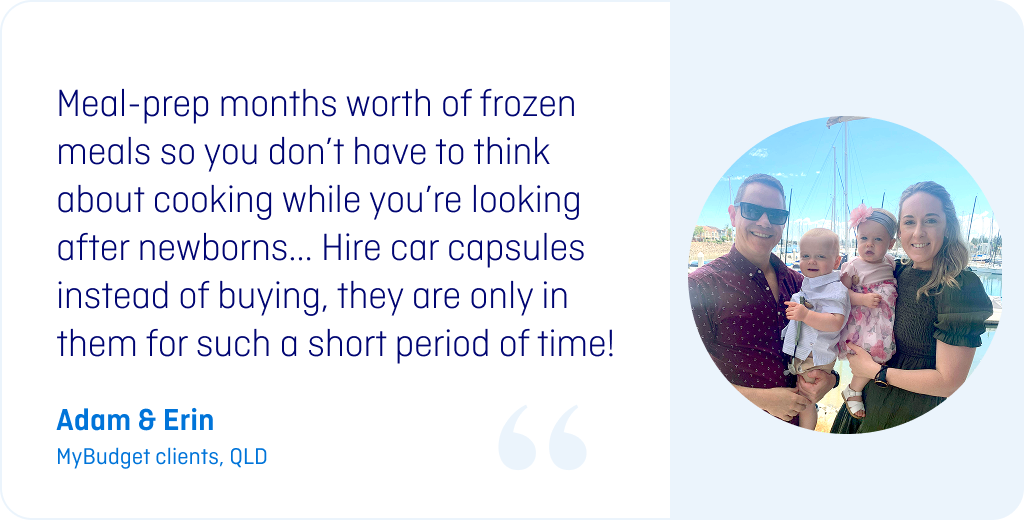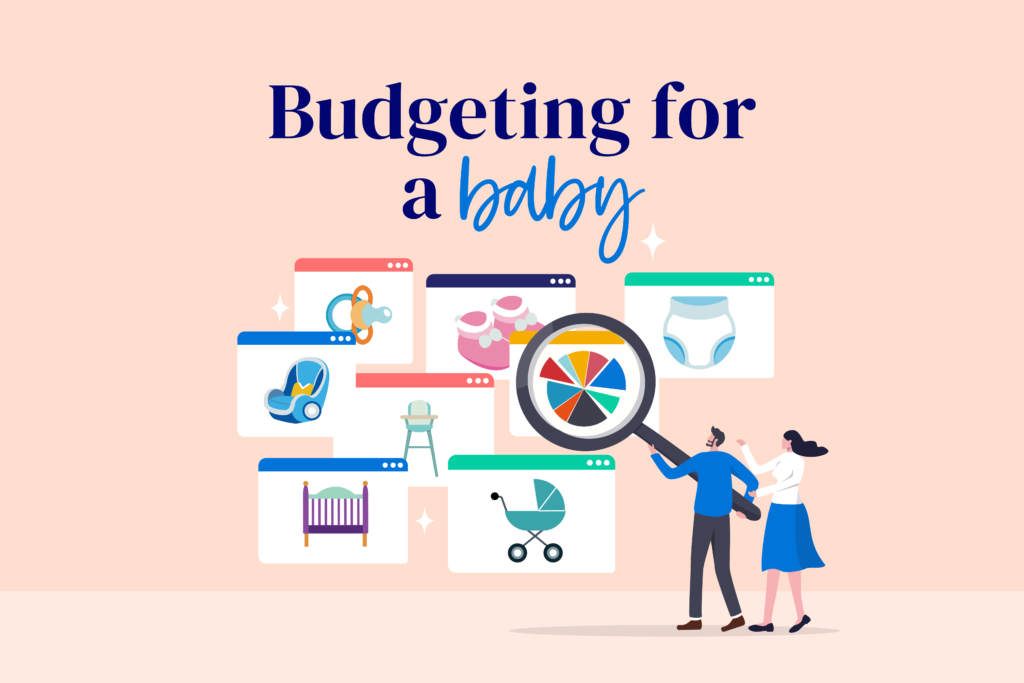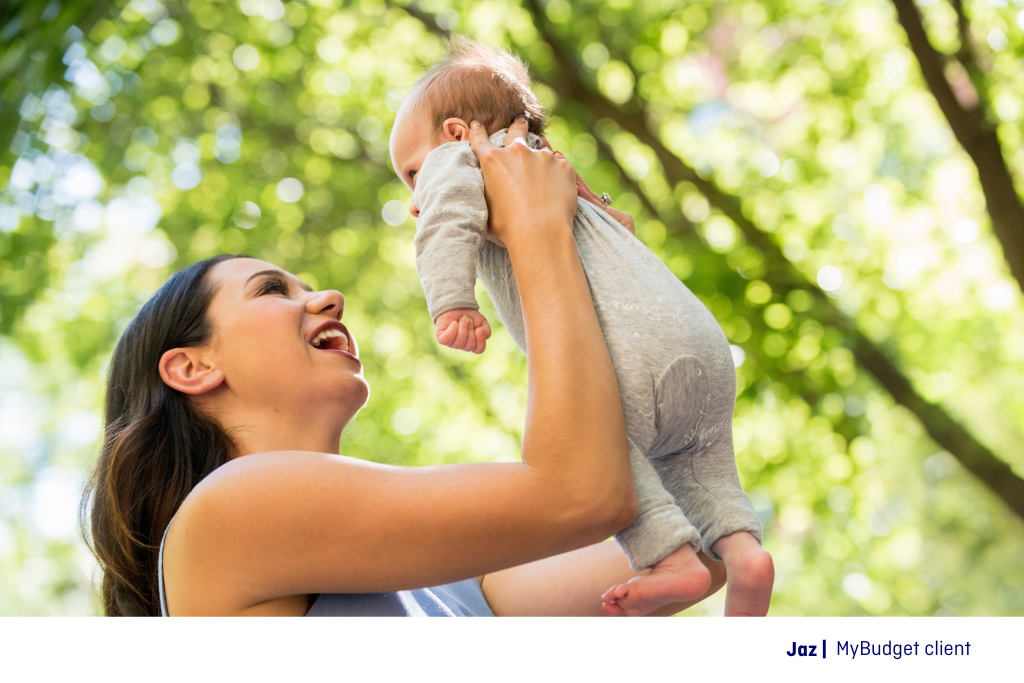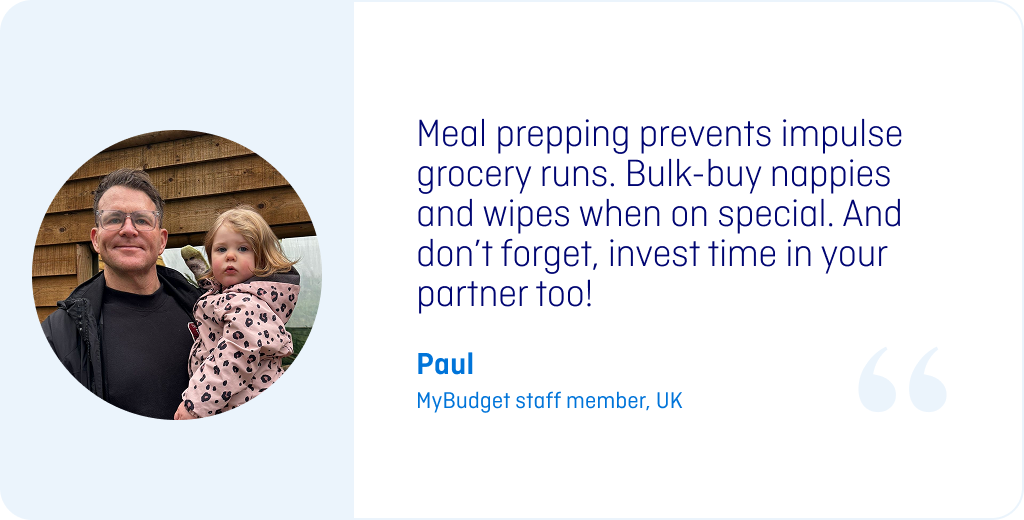Budgeting for a baby: how much does it cost to have a baby in Australia?
Wondering how much it costs to have a baby in Australia? How do you create a baby budget? This guide covers baby budgeting, government benefits, parental leave, childcare costs, and tips to survive on one income, so you can financially prepare for your growing family.
Why a baby budget is essential before you go on maternity leave
Shopping for a baby
It’s tempting to start baby shopping as soon as you know you are expecting, but before you start spending money, you need to know what’s coming in, what’s going out, and what you can actually afford once parental leave kicks in.
We’ve got a free Personal Budget Template designed to help parents stay home longer with their baby without racking up debt, because let’s be honest, losing an income (even temporarily) changes everything.
A solid baby budget means:
✅ You can plan for baby expenses before the due date panic sets in
✅ You won’t be forced back to work earlier than planned
✅ You’ll know exactly how much you need to save before bub arrives.
The financial reality of having a baby: what to expect before the due date
So, you’re thinking about having a baby? Amazing. Before kids, you have time, glorious, uninterrupted time. You can drink your coffee while it’s still hot, browse your phone without guilt, and even, wait for it… take a nap. Then, a tiny human arrives, and suddenly, your life is a whirlwind of love, cuddles, and next-level pooplosions (yes, there’s a number beyond twos). But that’s another blog entirely!
Today, we’re talking about money, and how much it costs to have a baby. From hospital bills, nappies, prams and the jaw-dropping cost of formula (seriously, is it infused with gold?) Baby expenses add up fast. These adorable little humans come with price tags that can rival a small car loan. So, if you’ve ever asked, “how much does it cost to have a baby?” or “how can I afford to stay home longer with my baby?”, you’ve come to the right place!
How much does it cost to have a baby in Australia? The financial impact of childcare, income changes, and government support
According to Canstar (2024), the cost of having a baby in Australia can range from $4,310 to $9,620 in the first year. This includes hospital costs, baby essentials, nappies, baby food, and transport, but doesn’t account for private health insurance, childcare, and reduced income if one parent takes extended leave.
If those numbers have you holding your breath, you can… exhale. We’ll show you how to cut costs, maximise government support, and make your money last longer.
Upfront baby expenses: essential expenses to prepare for your new baby
The current earthy aesthetic baby ranges are undeniably trending, filling Instagram feeds with dreamy rust, olive, mustard, blush and navy tones. But before you max out your budget for that designer babywear, ask yourself: “Do I really need this?” and “Does it have to be brand new or a high-end brand?” More and more low-cost department stores are nailing the latest styles and trends at a fraction of the price. Could a hand-me-down mattress from your child’s cousin work just as well? Can you score a top-brand pram second-hand on Facebook Marketplace? Even infant capsules can be hired instead of bought, and the same principle applies to almost every baby item, style and savings can go hand in hand.
These are the questions you need to ask yourself first to calculate your initial baby essentials.

Financial Guide to shopping for baby expenses
To give you a rough guide on baby expenses, we’ve sourced the lowest-to-highest price ranges from Baby Bunting. Of course, you can find deals at low-cost department stores, second-hand marketplaces, or borrow from friends and family to cut costs.
Here are some one-time purchases you can consider before bub arrives:
- Car seat: $349- $799 (required by law)
- Pram: $249 – $2,500 (Facebook Marketplace is your best friend)
- Mattress: $49 – $700
- Cot: $249 – $1,000
- Baby clothes: $200/quarter (they grow out of them FAST!)
- Toys & books: $5 – $426 (fyi: the library is free)
- Breast pump & bottles: $20 – $599
- Baby monitor: $49 – $649
- Change table & nappy bag: $99 – $549
- High chair: $35 – 699.
💡 HACK: consider borrowing, buying second-hand, or swapping with other parents to save hundreds of dollars.
What are ongoing baby expenses? Monthly costs to budget for
The monthly baby expenses that can really add up:
- Nappies: $80 – $120 per month (a newborn baby can use up to 8-12 nappies per day which is about 240 – 360 per month)
- Baby food/formula: $50 – $300 per month (newborns typically need 4-6 tins per month, costing $80 – $300 depending on the brand)
- Healthcare & private health insurance: between $100 – $300 per month depending on policies
- Utility bills: budget for an increase in water & electricity over time the more little people you add to your household.

Childcare costs in Australia
How do childcare costs vary suburb to suburb?
If you’re returning to work, childcare is one of the biggest expenses. According to Care for kids the average cost of full-time childcare is up-to $188 per day, which can total approximately $33,000 per year with a rate of 50% childcare subsidy applied. Many families rely on government subsidies to reduce costs (more on that below).
💡 HACK: if possible, see if family can help out part-time and also use the free Care for kids calculator to determine the average cost of childcare in your suburb.
Instead of buying smaller amounts of nappies or wipes every week, buy bigger packs, less often (usually once per month from somewhere like Big W or Amazon, depending on who is cheaper).
Casey | MyBudget staff member
Private health insurance for families: costs, maternity waiting periods, and birthing coverage options
Private health insurance that covers maternity care typically requires a 12-month waiting period, so planning this into your budget ahead of time is crucial. The cost varies widely depending on coverage level:
- Low-cost plans: around $100-$200 per month, covering essential hospital services but limited extras
- Comprehensive plans: can exceed $300+ per month, including private hospital stays, obstetrician fees, and additional pregnancy-related care.
💡 HACK: compare policies early and check if your chosen hospital and doctor are covered to avoid unexpected out-of-pocket expenses.

Government benefits & paid leave: how to maximise your support (and your parental leave)
The good news? There’s financial help available. Here’s what Aussie parents can access:
Paid Parental Leave (PPL)
- 24-26 weeks paid leave depending on your child’s date of birth (currently $915.80 per week)
- You must have worked at least 10 of the 13 months before birth
- You can choose how you use and share your Parental Leave Pay days
- Parental Leave Pay is a taxable payment. Get more info on PPL Tax here.
Parental Leave Pay & Dad/Partner Pay
- Additional two weeks paid leave for partners
- Paid at minimum wage.
Family Tax Benefit (FTB)
- Ongoing payments to help with the cost of raising kids
- FTB Part A & Part B (eligibility for FTB depends on your household income).
Child Care Subsidy (CCS)
- Covers up to 90% of childcare costs (based on income)
- Paid directly to childcare providers.
Child Support Payments: what you need to know
If you’re separated or co-parenting, child support payments may play a role in your household budget. The amount paid or received depends on income levels, care arrangements, and the cost of raising a child.
💡 HACK: if child support is part of your budget, planning independently of these payments ensures financial stability in case circumstances change.
(To calculate exactly what benefits you could be entitled to, use the Services Australia Payment Finder)
How to extend your parental leave if you’re not ready to return to work
The key to staying home with your baby longer? A solid budget. Use the time before or while expecting to create a parental leave savings fund, even if it’s just setting aside a little extra each week. Planning ahead gives you the freedom of choice if you’re not ready to return to work when your leave officially ends.
Here are a number of ways to extend your parental leave:
- Start saving now: build a parental leave savings fund before the baby arrives to help cover extra months at home
- Budget strategically: adjust your spending and use our free Personal Budget Template to help stretch your finances further
- Stagger your return to work: some workplaces allow part-time or flexible work arrangements to help ease back into the workforce
- Maximise government payments: combine Paid Parental Leave (PPL), Family Tax Benefits, and Child Care Subsidy to extend your financial buffer
- Negotiate with your employer: ask if you can take unpaid leave, use long service leave or annual leave to extend your time at home.
Op shops are gold for kids’ clothes. They grow out of them so fast, and second-hand finds are often barely worn, perfect for daycare outfits.
Simone | MyBudget staff member
How to save money when having a baby
1. Plan for unexpected baby expenses
Always have an emergency fund for surprise medical costs, unexpected purchases, and last-minute baby essentials. Even with the best planning, costs like extra hospital bills, unplanned doctor visits, and baby gear replacements can sneak up on you.
2. Use Facebook Marketplace & buy, sell, swap groups
Many parents list high-quality baby items that has been outgrown in just a few months, meaning you can source essential baby goods like designer babywear, bassinets, high chairs, and playmats for a fraction of retail prices. Buying second-hand also helps reduce waste and stretch your baby budget further.
3. Create a baby registry for your baby shower with practical must-have items
Encourage friends and family to contribute to practical baby gear like nappies, wipes, bottles, or even big-ticket items like a pram or cot. You can even request group gifts or vouchers for essentials to maximise every dollar.

Final thoughts: planning for a baby means planning for your financial future
Having a baby is a huge financial change, but with a solid budget, smart spending, and the right government benefits, you can stay home longer and stress less.
Want personalised help creating a budget for your growing family? MyBudget has helped over 130,000 Australians take control of their finances. Book a free consultation today or call us on 1300 300 922.
